Loyalist paramilitaries embedded in community organisations ‘for good PR’: ‘People don’t realise their kids are being groomed to be dealers or addicts’
Posted by Jim on May 15, 2024
Communities have say on criminals controlling them and the societal issues they exploit to fuel their activity
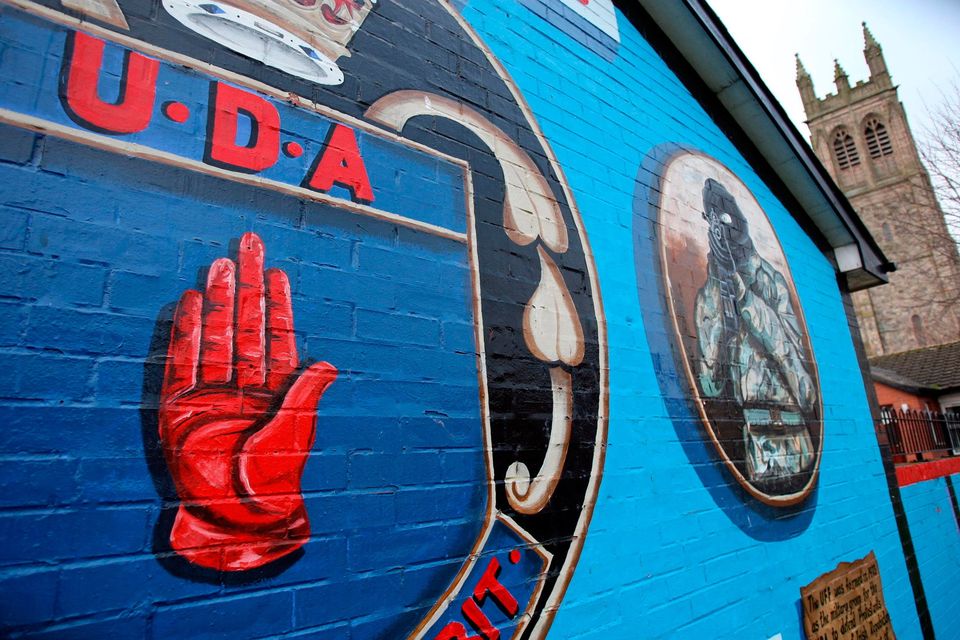
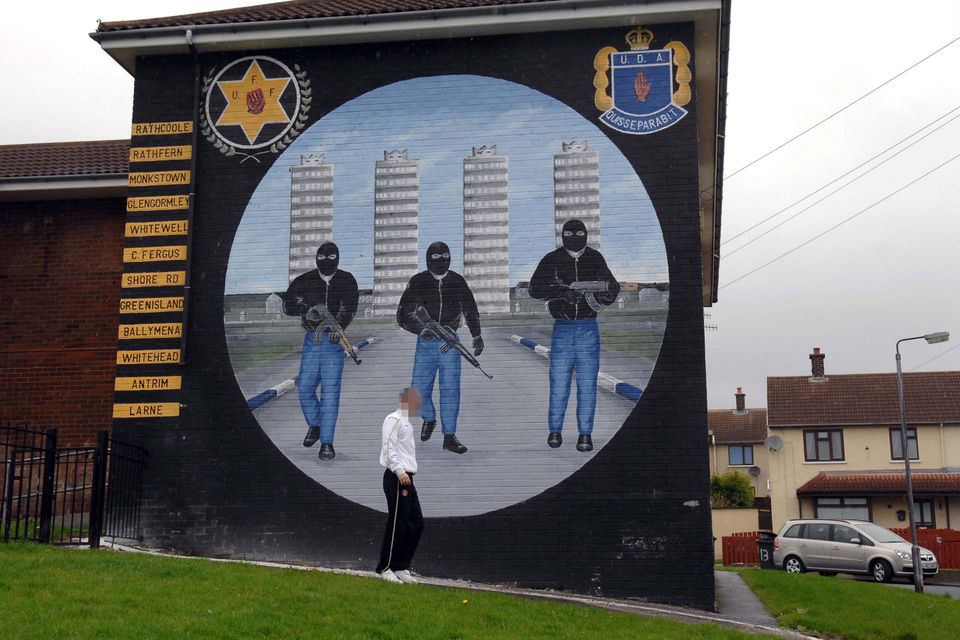
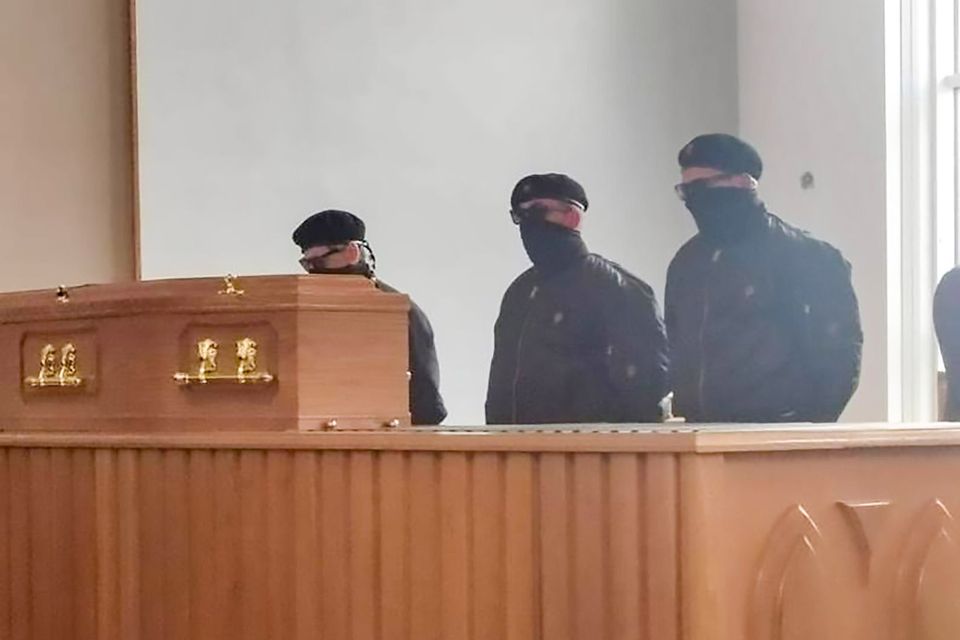
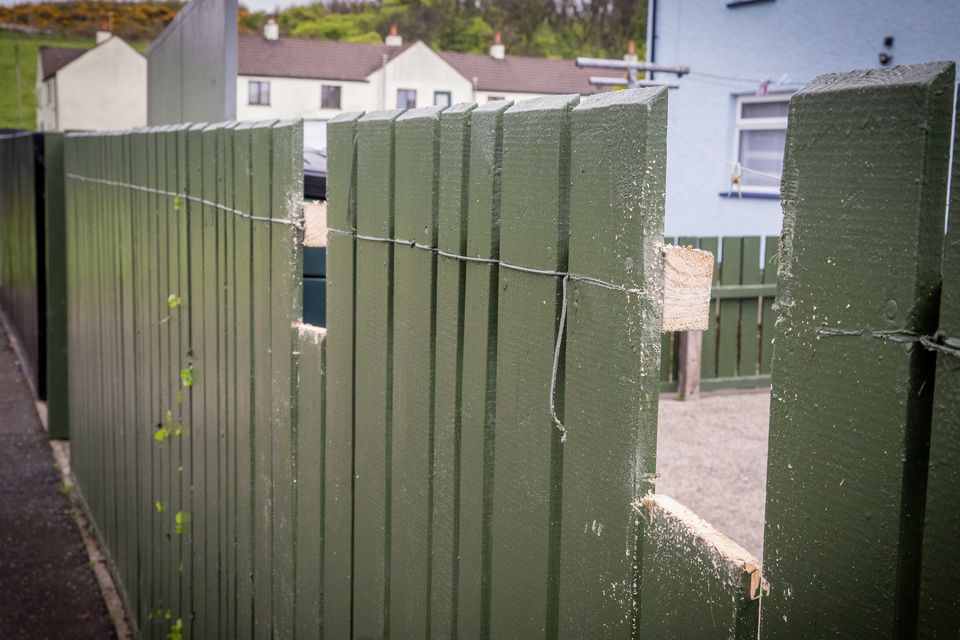








Niamh Campbell
Not a month goes by in Northern Ireland, where either the UDA or UVF don’t make any headlines, and quite often, people here don’t really bat an eyelid,
At an event exploring Paramilitary Intimidation Within Communities in 2015, Professor Liam Kennedy from the Institute of Irish Studies at Queen’s University Belfast said there is a “degree of acceptance to dehumanisation over half a century”.
This could explain why so many residents in paramilitary-dominated areas appear to be desensitised to their activities.
However, in the last fortnight, more members of the public have been displaying outrage at the bizarre and brazen acts some paramilitary members have been carrying out, with seemingly no worries of consequences or reproach.
Earlier this month, the Belfast Telegraph revealed that six masked men in paramilitary uniforms carried the coffin of Andrew ‘Andy’ Best, a former member of the UDA’s 3rd Battalion based in Tigers Bay.
Despite the paramilitary funeral, sources in Tigers Bay say Best was at one time subjected to a punishment attack from the organisation he had been a member of since his early 20s, and police now say they are investigating images of the masked men at the funeral, which took place in April.
On Friday, a 37-year-old man was arrested by police investigating a ‘crucifixion’ attack in which a man was nailed to a fence in Bushmills, Co Antrim, during the early hours of May 5. Police confirmed on Saturday morning that he had been released from custody following questioning.
The North Antrim UDA has been linked to the attack.
The group had previously issued threats and there had been accusations of criminality against individuals painted on walls in the area.
According to PSNI data, between 2022 and 2023, there were 23 casualties as a result of paramilitary-style assaults carried out by loyalist groups, and four loyalist paramilitary shootings.
And last October, an academic told MPs that there are more loyalist paramilitaries in Northern Ireland today than there were 30 years ago.
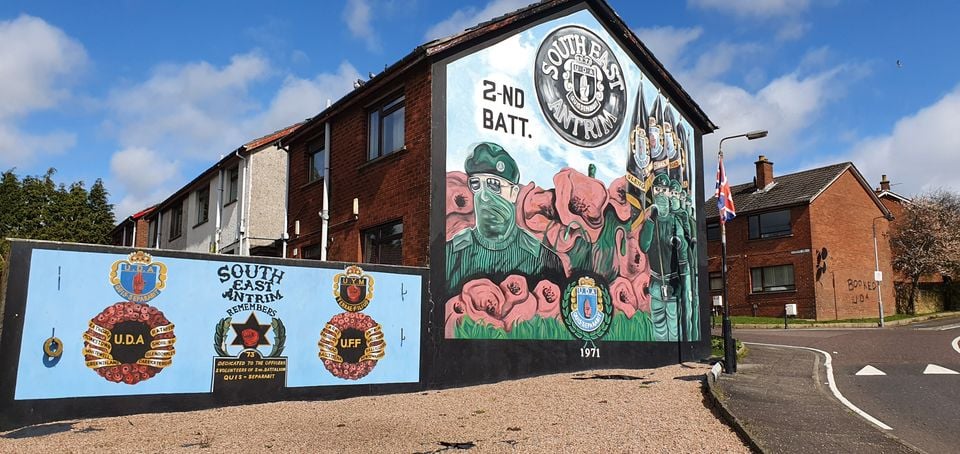
Dr Aaron Edwards, a lecturer at the Royal Military Academy Sandhurst, said: “The political dimension has lessened since the ceasefires (in 1994), however since the Brexit referendum and subsequent protest actions on the streets, we have seen new life breathed into these old antiquated paramilitary structures.”
Dr John Kyle, a former veteran unionist politician for east Belfast, says that throughout his 16 years of sitting on Belfast City Council, he never felt that paramilitary activity was waning.
“I didn’t feel that it was going away, despite all the good work being done, including the good work being done by those who used to be involved with these organisations,” he explained.
“Some of them are doing really good work, and have done really work over past decades – those such as The Resurgam Trust in Lisburn, Act Initiative on the Shankill and Alternatives Restorative Justice [all community organisations dedicated to building communities and tackling anti-social behaviours].
“But, the loan sharks, protection racketeering, threatening and coercive control was – and is – still not going away.
“Part of the problem is that the sentences that are being given out in court to drug dealers are a laugh. They are totally inadequate. These people are getting short and suspended sentences, when they should be getting put away for years, because they’re destroying lives and corrupting societies.”
In Northern Ireland, judges are bound by sentencing guidelines and must take into account mitigating circumstances, such as early guilty pleas, co-operation with police and remorse, as well as aggravating factors, such as intent and excessive violence.
Dr Kyle continued: “Communities, politicians and churches can’t deal with them – the criminal justice system needs to.
“It is time for paramilitaries to leave the stage. It is absolutely essential that they transition into full civilisation in the next year or two, because otherwise they’re just giving cover to these criminal gangs.”

Understandably, when approached for their views on this type of behaviour, many people from within communities deemed as loyalist or unionist don’t want to be named, because they are still living in fear or don’t want to be criticised and targeted for seemingly ‘stepping out of line’.
One community worker, who has been volunteering his time to work with children in certain areas of east Belfast for over 10 years, says he feels like he is “losing a battle to paramilitaries every single hour, of every single day’.
He believes loyalist gangs are worse than their republican counterparts, as they “hide in plain sight”.
“These loyalist paramilitaries are embedded in everything now; pubs, community centres, football clubs, darts teams, pool teams, boxing clubs – if they control everything, how do clubs outside of that get sponsorship?
“They use these outlets as a way of good PR for themselves – ‘look at the good we are doing for our community and for the kids here’ – but really, they are means to control those neighbourhoods from within, and a means to launder their illegal money.
“People don’t realise their kids are being groomed quite literally, to become drug dealers and drug addicts themselves, through these organisations.
“They also get the local chippy or taxi firm or whatever to sponsor said teams, but it’s not really sponsorship money, it’s protection money.
“Japanese knotweed can destroy houses, it destroys foundations, and it takes over.
“The paramilitaries are Japanese knotweed to the community. They get in, and you can’t get them out.
One woman from north Belfast, whose father was in the UDA during the Troubles, stressed that exactly what the late PUP leader said, is “what we are seeing today”.
“The fact is, these are criminal gangs using loyalism and the organisations as coverage. That’s not what loyalism is,” she said.
“A lot of loyalists are doing fantastic work and I know that they are doing it quietly. A lot of them have transitioned since the 80s and 90s, and have done so successfully.
“We are also seeing intergenerational trauma, poverty and social disadvantage, which I have to say, the Executive has failed to address.
She added that the government and unionist politicians have failed the people they are supposed to represent, but noted that the same goes for republican communities.
“Just look at north Belfast. You have Tiger’s Bay on one side of the road and the New Lodge on the other. The working class people are suffering the same.
“In fact, a north Belfast women’s group led by the Shankill Women’s Centre, produced a photography book several years ago. They compared the photos from both areas and found they had the same issues.
“Poverty, lack of appropriate housing, lack of amenities and a lack of things for young people to do – that is what allows these gangs to thrive.”